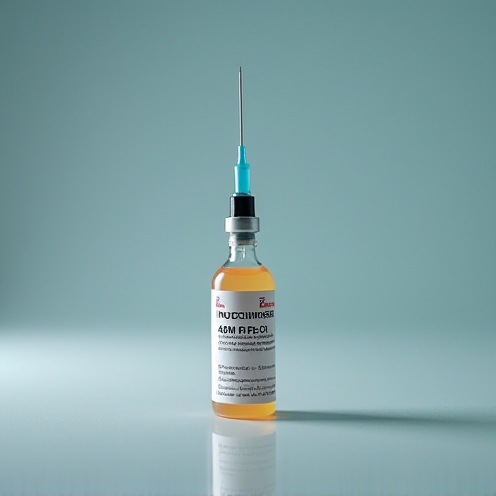Manohexy Injection
Product Info
| Prescription required | Yes |
| Marketer | Orchid Chemicals & Pharmaceuticals Ltd |
| Active Ingredient | Trihexyphenidyl (2mg) |
| Salt Synonyms | Benzhexol |
| Storage | Store below 30°C |
| Chemical Class | Aralkylamines Derivative |
| Habit Forming | No |
| Therapeutic Class | NEURO CNS |
| Action Class | Anticholinergic- centrally acting |
| User Rating | 4.7 |
| User Reviews | 616 |
FAQ


























Manohexy Injection Reviews
Manohexy is given under the supervision of a healthcare professional. Do not skip any doses and finish the full course of treatment even if you feel better. It is important that this medication is not stopped suddenly without talking to doctor as it may result in a worsening of symptoms.
Some common side effects of this medicine include nausea, vomiting, constipation, and blurred vision. It even causes dizziness and sleepiness, so do not drive or do anything that requires mental focus until you know how this medicine affects you. Dry mouth may occur commonly while using this medicine so, try to do frequent mouth rinses, maintain good oral hygiene, and increase water intake. Avoid wearing contact lenses as it may cause dry eyes as well. It is important to inform your doctor if you suffer from glaucoma or have trouble in passing urine.
Before using Manohexy, you should tell your doctor if you've ever had heart problems, problems with passing urine, liver or kidney disease. It may also affect, or be affected by, some other drugs you are using so let your doctor know what these are to be safe. Pregnant or breastfeeding mothers should consult their doctor before starting treatment with this medicine.
How Manohexy Injection Works
How to Use Manohexy Injection
Benefits of Manohexy Injection
- In Treatment of Parkinson's disease: Parkinson’s disease (PD) is a disorder of the central nervous system. It makes the muscles stiff which causes difficulties in standing and walking. PD also causes tremors and loss of balance. Manohexy helps to treat the symptoms of Parkinson's Disease. It relaxes the stiff muscles and helps in easy movement without losing balance. Manohexy is also used to treat side effects like abnormal movements caused by antipsychotic drugs. It is advisable not to stop this medicine without consulting your doctor. This is because a sudden stoppage can cause symptoms of Parkinson's disease to return. You can see that the drug is working if you are able to do your daily activities more easily and have a more active and better quality of life.
- In Treatment of Drug induced abnormal movements: Manohexy is also used to treat side effects like abnormal movements caused by antipsychotic drugs. It helps restore normal body posture as well as control over muscle movements in the body. This will enable you to lead a normal life and improve your ability to carry out daily activities.
Uses of Manohexy Injection
- Treatment of Drug induced abnormal movements
- Treatment of Parkinson's disease
Manohexy Injection Side Effects

Safety Tips
Quick Tips
- Monitoring of intraocular pressure is required while taking this medicine, as an increase in eye pressure may cause blurry vision.
- It may cause dry eyes. Avoid wearing contact lenses and inform your doctor if it bothers you.
- It may cause dry eyes. Avoid wearing contact lenses and inform your doctor if it bothers you.
- Dry mouth may occur as a side effect. Frequent mouth rinses, good oral hygiene, increased water intake and sugarless candy may help.
- Monitoring of intraocular pressure is required while taking this medicine, as an increase in eye pressure may cause blurry vision.
- It may cause dizziness and sleepiness. Do not drive or do anything requiring concentration until you know how it affects you.
- Inform your doctor if you suffer from glaucoma or if you have trouble passing urine.
- Inform your doctor if you suffer from glaucoma or if you have trouble passing urine.
- Dry mouth may occur as a side effect. Frequent mouth rinses, good oral hygiene, increased water intake and sugarless candy may help.
- It may cause dizziness and sleepiness. Do not drive or do anything requiring concentration until you know how it affects you.
References
- Stahl SM, editor. Trihexyphenidyl. In: Stahl's Essential Pschopharmacology: Prescriber's Guide. 5th ed. New York, New York: Cambridge University Press; 2014. pp. 697-99.
- Drugs and Lactation Database (LactMed) [Internet]. Bethesda (MD): National Library of Medicine (US); 2006. Trihexyphenidyl. [Updated 2018 Dec 3].
- Trihexyphenidyl [Product Label]. Pearl River, NY: Lederle Pharmaceutical Division; 2003.
- Briggs GG, Freeman RK, editors. A Reference Guide to Fetal and Neonatal Risk: Drugs in Pregnancy and Lactation. 10th ed. Philadelphia, PA: Wolters Kluwer Health; 2015. p. 1405.
